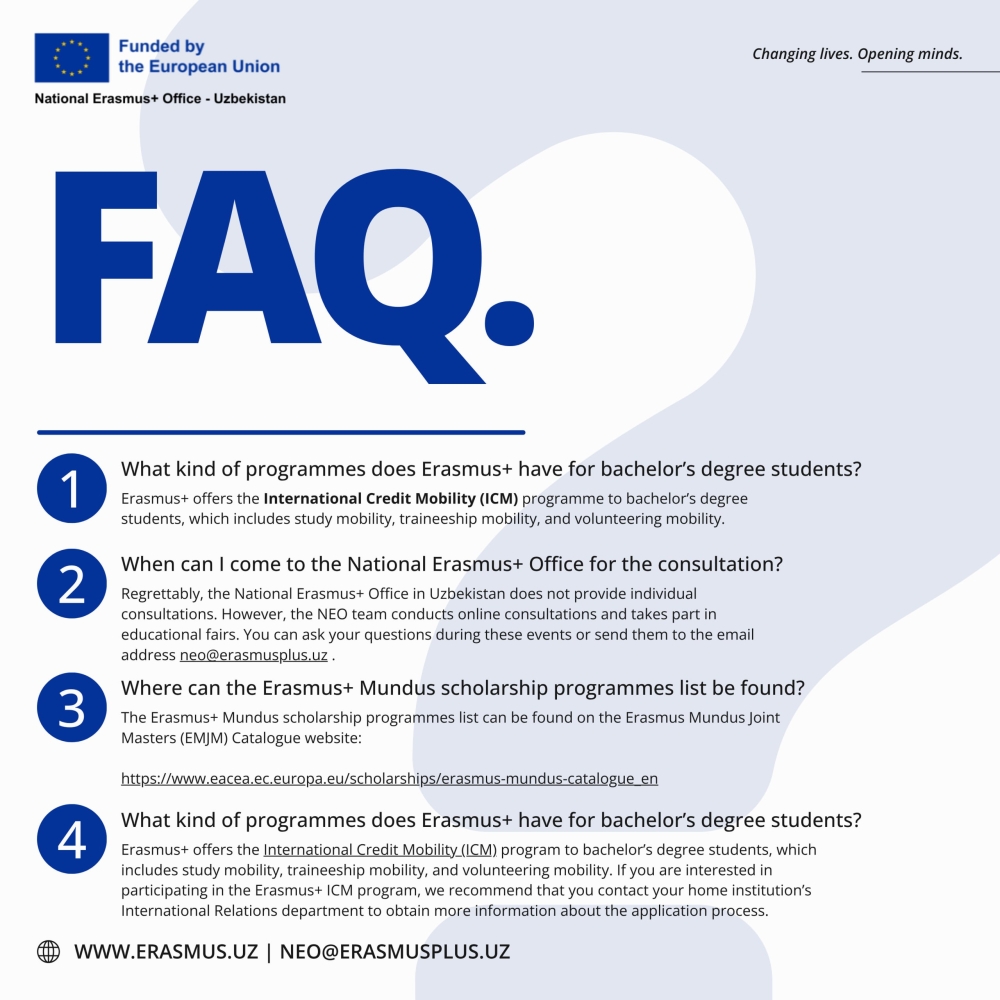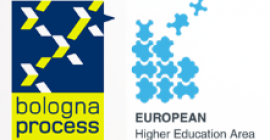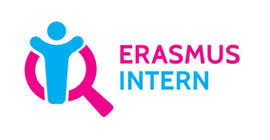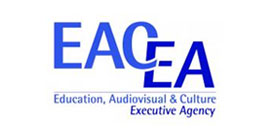News
Frequently Asked Questions (FAQ) about Erasmus+

Frequently Asked Questions (FAQ) about Erasmus+
1. What is Erasmus+?
Erasmus+ is the European Union’s programme supporting education, training, youth, and sport. It offers students, teachers, and staff the opportunity to study, teach, or train in Europe for a set period.
2. What does the National Erasmus+ Office in Uzbekistan do?
We support the effective implementation of the Erasmus+ Programme in Uzbekistan through:
-
Providing information about the programme
-
Advising applicants
-
Helping find local and international partners
-
Monitoring project implementation
-
Coordinating the Higher Education Reform Experts (HEREs)
-
Organizing various events (seminars, info days, etc.)
3. Can I visit the office for a consultation?
The National Erasmus+ Office does not provide individual consultations. However, we participate in online sessions, open events, and education fairs. If you have questions, feel free to email us at neo@erasmusplus.uz
4. What opportunities are available for bachelor’s students?
Through the International Credit Mobility (ICM) programme, you can:
-
Study abroad for 3–12 months
-
Do a traineeship for 2–12 months
To apply, contact the International Relations office at your home university.
5. Where can I find the list of Erasmus Mundus programmes?
You can find the Erasmus Mundus Joint Masters (EMJM) catalogue here:
https://www.eacea.ec.europa.eu/scholarships/erasmus-mundus-catalogue_en
Each programme has a separate website and its own application deadline—some open in summer, autumn, or winter.
6. When can I apply for Erasmus+ programmes?
It depends on the programme. For EMJM, applications usually open between October and February. For ICM, deadlines vary depending on the university. We recommend checking announcements regularly.









